7 April 2022 Edition
The mandate that never was
Did the General Election of 1922 endorse the Treaty?
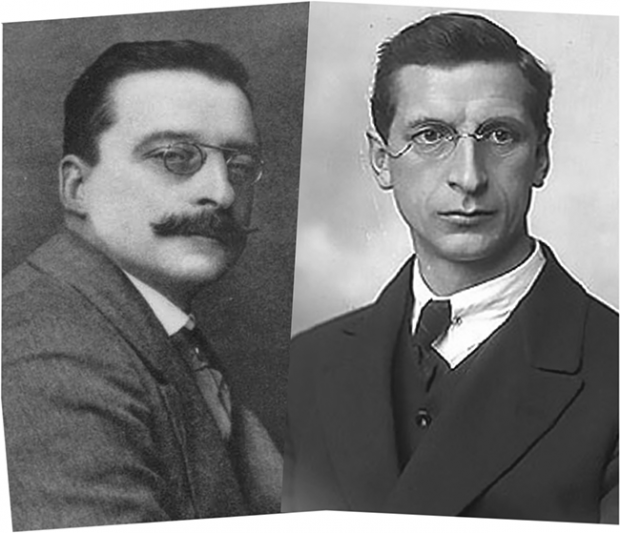
• Arthur Griffith and Éamon de Valera
It has long been argued that the General Election of June 1922 was a ringing endorsement by voters in the 26 Counties for the Treaty and the Free State. But was that really the case, and did the election give the Free State government what it later claimed as a mandate to forcibly suppress their Republican opponents?
It is a question worth examining carefully. The story of the election begins on 22 February 1922 when the Sinn Féin Ard Fheis met in Dublin’s Mansion House. The Dáil had passed the Treaty by just seven votes the previous month. There were nearly 3,000 in attendance at the Ard Fheis and Michael Collins admitted that there was a majority against the Treaty in the hall. But there was also a strong desire to avoid splitting the Sinn Féin organisation.
All recognised the huge achievements of Sinn Féin in successive elections; the by-elections of 1917 and 1918 and the overwhelming General Election victory of December 1918 with its endorsement of the party’s Republican manifesto, and the reinforcement of that mandate in local elections in 1920 and in the General Election of 1921. Few were prepared to contemplate the breaking up of the organisation.
Griffith – de Valera unity motion
On what basis could unity be found given the deep pro- and anti-Treaty divisions? Arthur Griffith and Éamon de Valera met and agreed a motion:
In order to avoid a division of the Sinn Féin organisation, and to avert the danger to the country of an immediate election, to give an opportunity to the signatories of the London Agreement to draft a Constitution, so that when the people are asked to vote at elections to decide between the Republic and the Saorstát, the Constitution of the latter may be definitely before them -
It is hereby agreed:
1. This Ard Fheis shall stand adjourned for three months.
2. That in the meantime: (a) The Officer Board of the organisation shall act as a standing committee. (b) Dáil Éireann shall meet regularly and continue to function in all its departments as before the signing of the Articles of Agreement, and that no vote in Dáil Éireann shall be regarded as a party vote requiring the resignation of the President and Cabinet. (c) That in the meantime no Parliamentary Election shall be held and that when held the Constitution of the Saorstát in its final form shall be presented at the same time as the Articles of Agreement.
3. That this Agreement shall be submitted to the Ard Fheis and if approved shall be binding.
This motion was adopted unanimously by the Sinn Féin Ard Fheis.
March and April were dominated by the crisis within the military side of the movement. The Anti-Treaty IRA asserted its right to oppose the Treaty and to establish its own Executive. The Provisional Government of the Free State began to establish its own army and there was a tug-of-war to control the IRA. There were some armed clashes, but outright conflict was avoided and various efforts were made to restore Army unity or at least to avoid war.
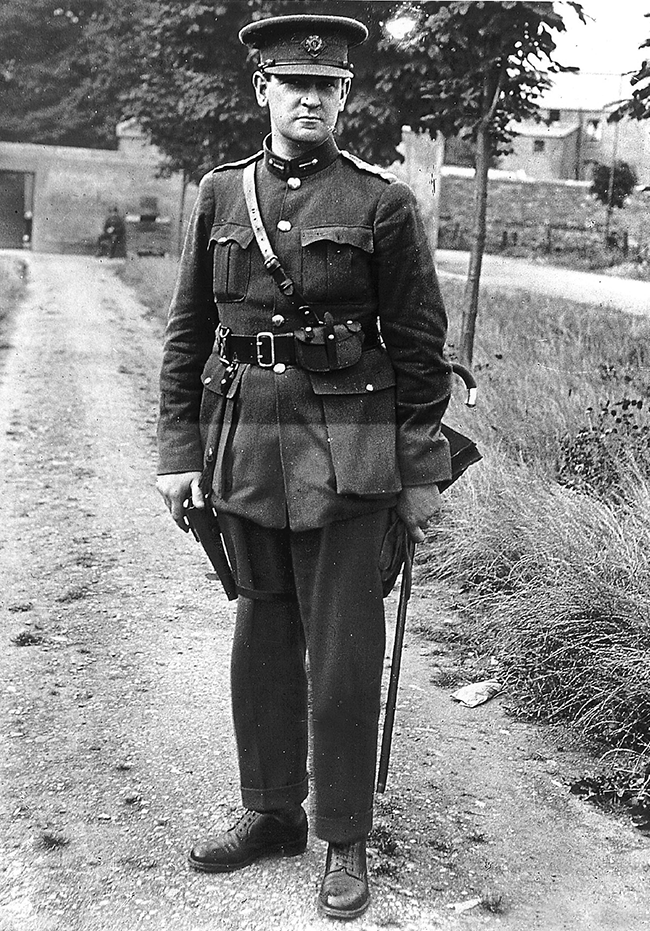
• Michael Collins
In Dublin, Michael Collins was Chairman of the Provisional Government and Arthur Griffith was President of Dáil Éireann, with parallel cabinets. De Valera led the anti-Treaty TDs.
In London, most of the dealing with the Provisional Government was done on behalf of the British government by Colonial Secretary Winston Churchill. In Belfast, Unionist Prime Minister James Craig was consolidating the new ‘Northern Ireland’ statelet, armed with the newly enacted draconian Special Powers Act which gave the regime new machinery of repression, with the death penalty and flogging prescribed for a range of offences.
Michael Collins saw the drafting of a constitution which would reach beyond the provisions of the Treaty as an opportunity to reunite the IRA and prevent conflict. But the British government, which had threatened immediate and terrible war if the Treaty was not signed, was watching closely and was determined to keep Michael Collins and Arthur Griffith on a short leash.
British pressure
In the wake of the Sinn Féin Ard Fheis, Winston Churchill, having summoned Griffith to London, told the British House of Commons:
“The Irish Ministers have in no respect receded from the Treaty or weakened in their determination to carry it through in its integrity. Their opposition to the Republican Party continues unabated.”
The British were pressing for a general election to be held in the 26 Counties to endorse the Treaty. But both pro- and anti-Treaty sides at this time were more concerned with avoiding conflict. In addition, there was a problem – the electoral register. Republicans and many others were concerned at the state of the register. It had not been updated since 1920 nor had women been given full equality with men. Only women over 30 could vote. In March, Kathleen O’Callaghan TD, backed by fellow Republicans, had proposed equality but this was voted down by Arthur Griffith’s pro-Treaty TDs.
Griffith claimed there was not enough time to revise the inaccurate register, but it was pointed out that they had the three months prescribed in the Representation of the People Act. Even when he was called on to update the register without necessarily reforming the franchise for women, Griffith still refused to allow the electoral register to be updated. Many men and women who had fought in the war against the British were thus denied the right to vote.
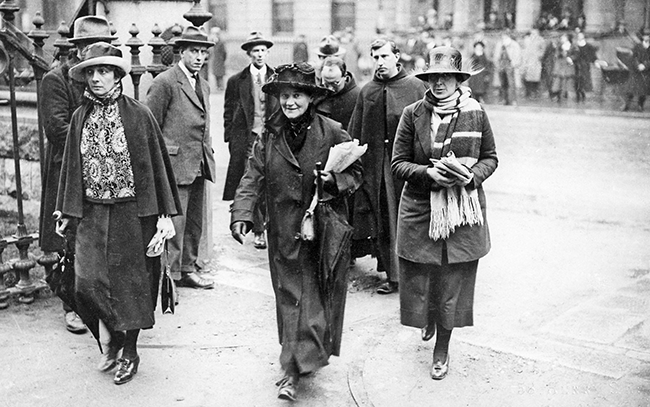
• Kate O’Callaghan and Mary McSwiney on their way to the Treaty debates in Earlsford Terrace
Throughout the first months of 1922, conflict intensified in the Six Counties. The pogrom against the non-Unionist population continued, with the B Specials active in the sectarian attacks. Collins engaged with Craig and extracted commitments to end the pogrom but these proved useless.
Assurances from Collins to northern nationalists that the Boundary Commission provided in the Treaty meant that they would not be abandoned, were undermined by the British government. In a letter to fellow Tory Lord Balfour, the Treaty signatory Lord Birkenhead said the purpose of the Boundary Commission clause in the Treaty was “the maintenance of Northern Ireland as an entity already existing…It is regarded as a creature already constituted, having its own Parliament and its own defined boundaries”.
Collins was playing a double game. He was co-operating with the anti-Treaty IRA to aid nationalists in the Six Counties and to undermine the new Orange state. In May, Collins and his Minister for Defence Richard Mulcahy and Free State Army Chief of Staff Eoin O’Duffy were secretly arming and directing an IRA offensive in the Six Counties. This involved both pro- and anti-Treaty volunteers and was supposed to culminate in a general rising and a push on Belfast.
The attacks were sporadic, volunteers were killed and captured and one key division, that commanded by Frank Aiken on the Armagh-Louth border, did not take part. It ended in confusion and disarray and weakened the IRA in the Six Counties. In the same month, Craig imposed internment without trial with hundreds being rounded up and thrown in jails and on the prison ship 'Argenta' in Belfast Lough.
The Collins ‘northern offensive’ was carried out in co-operation with the IRA in the Four Courts. As Rory O’Connor of the Four Courts garrison later revealed, they had not been asked to leave the Four Courts at this time. The Free State side actually exchanged rifles with the IRA – giving them rifles supplied by the British to the Free State which could be easily identified as such. The rifles sent north were those of the IRA which could not be directly linked to the Free State.
Collins – de Valera pact
While this co-operation did not yield the desired results in the Six Counties, it did raise hopes of some form of reconciliation between pro- and anti-Treaty sides. On 20 May in Dáil Éireann, it was announced that Michael Collins and Éamon de Valera had agreed a pact.
While deeply resented by Arthur Griffith, the Pact was widely welcomed in the Dáil and the country. It provided that the June General Election would be fought on an agreed basis and, rather than a vote on the Treaty, would be regarded as an election for a National Coalition government. Candidates would be put forward based on the current numbers of pro- and anti-Treaty TDs in the Dáil. The first clause read:
“That a National Coalition panel for this Third Dáil, representing both parties in the Dáil and in the Sinn Féin Organisation, be sent forward, on the ground that the national position requires the entrusting of the Government of the country into the joint hands of those who have been the strength of the national situation during the last few years, without prejudice to their present respective positions.”
It also provided for an Executive or Cabinet with both pro- and anti-Treaty members and, as the election was to be held in the 26 Counties only, those TDs currently representing the Six Counties would continue to sit in the Third Dáil. The Pact was ratified by a special Sinn Féin Ard Fheis on 23 May.
The British government reacted with fury. In the House of Commons, Churchill said that if Republicans were to become members of the new Irish government without signing the oath then “the Treaty is broken by that very fact at that very moment” and the “Imperial Government” would take action including “reoccupation of territory as we may think appropriate”. Birkenhead said that should a crisis arise “the resources of civilisation are by no means exhausted” and England would “resume the inevitable bloody struggle”.
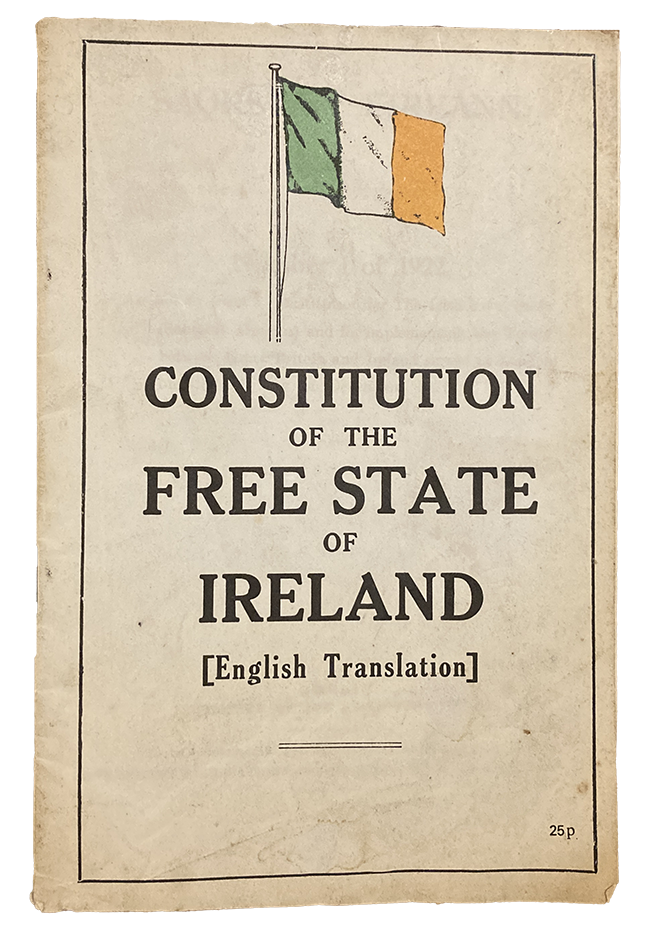
In parallel with the Pact, the other factor that built hopes of reconciliation was the drafting of a new Free State constitution. Based on speeches by Collins at the Ard Fheis and elsewhere, it was widely believed that a constitution could emerge that would be tolerated by Republicans and could avoid war.
Griffith led a delegation to London on 6 June with the Irish draft which minimised the place of the English monarch. The British government was furious again. They rejected the Irish draft and insisted on the one that eventually emerged, sticking strictly to the letter of the Treaty and placing the English monarch front and centre.
This was a crucial moment of decision, echoing the night of the Treaty signing the previous December. Now again in London, Collins and Griffith faced a choice – stick to their draft Constitution and the Collins-de Valera Pact or accept the British-dictated Constitution and fight the election on a straight pro-Treaty platform. They chose the latter course and, in a speech in Cork on 14 June, Collins broke the Pact, calling for votes for pro-Treaty candidates, rather than for all Coalition candidates. The Daily Mail commented, “After such a speech, the Pact can only be described as breaking up.”
Polling day
Polling day was 16 June, but where was the new Constitution that the people were promised would be published? It did not appear in the newspapers until polling day itself meaning that vast numbers of voters never saw it and very few had a chance to scrutinise it.
The British imperialist press welcomed it warmly, with the Sunday Times saying, “the English victory is plain”. George Gavan Duffy, who had signed the Treaty, had believed that a progressive constitution was possible and was bitterly disappointed, writing that the Free State government could have held out and appealed to international opinion, including the League of Nations, against British dictation.
The election results were announced on 24 June. 58 pro-Treaty and 36 anti-Treaty TDs were elected as well as 17 for Labour, 7 Farmers Party, 4 Unionist, and 6 Independents. The Free State side immediately interpreted this as an endorsement of the Treaty. However, the result was far from clear-cut.
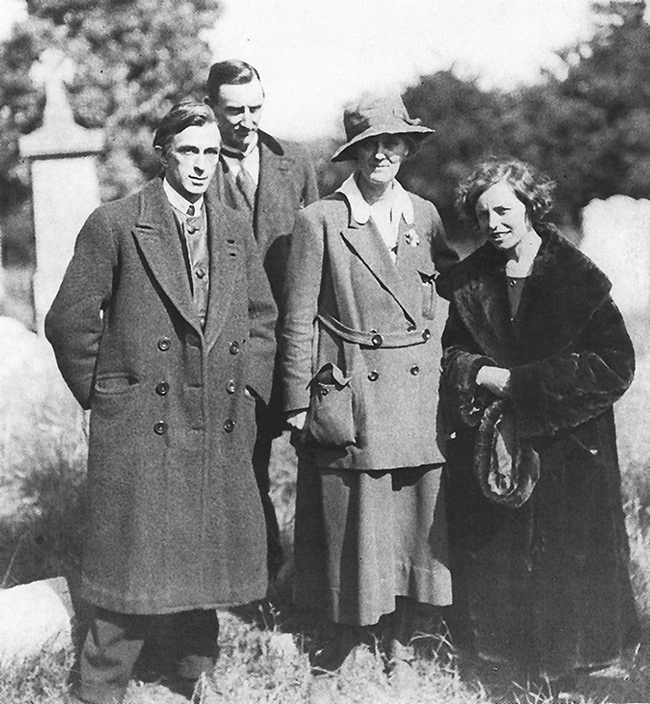
• Bodenstown 1922, Rory O'Connor, Oscar Traynor, Molly Hyland and Muriel MacSwiney; (top) Liam Mellows delivering the oration
Up until two days before the election, the Pact had held and candidates had gone forward on panels supporting that Pact and a National Coalition. The vast majority were elected on that basis, including Labour, which supported the Pact. The Treaty as such was not put before the voters, the Free State Constitution having only appeared on polling day. And there was the matter of a fundamentally flawed register and an unequal franchise.
What had happened in London, the shredding of the Irish draft constitution, was unknown to voters. In the days that followed the election, the pattern of British pressure, and Free State collapse under that pressure, was set to continue until it culminated in the Free State bombardment of the Four Courts with British guns, the opening shots of the disastrous Civil War.
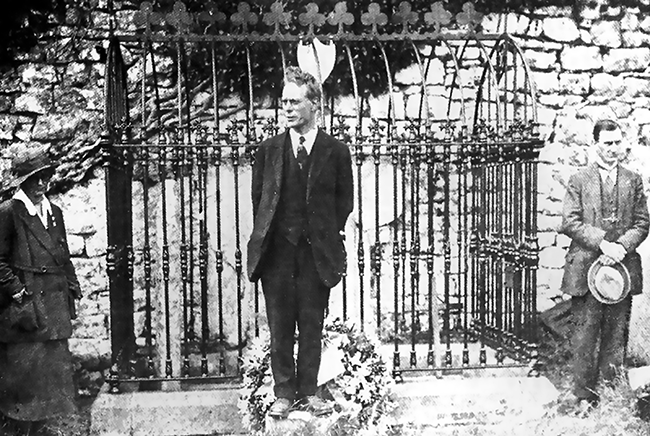
• Liam Mellows
On the Sunday following the election, Republicans gathered at Bodenstown and the oration was given by Liam Mellows. Reflecting the sombre mood of the gathering, Mellows said:
“We who meet together on this holy ground do not assemble today to sing the swansong of Irish republicanism. The Irish republican movement is not dead. Certain people have taken the road of expediency and descended into hypocrisy to achieve their object but republicans must not deviate one inch from the straight road. It is regrettable that our people have yielded to the threats of England but republicanism will go on in spite of what has happened. Gathered around the grave of Wolfe Tone today are some who have endured suffering and encountered terrible danger during the terrible days of conflict. We are still true to their ideals and will not be led away by those who have chosen the road of expediency.” •
Mícheál Mac Donncha is a Sinn Féin Dublin City councillor




